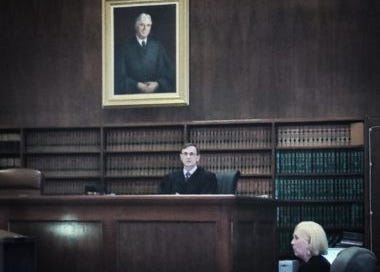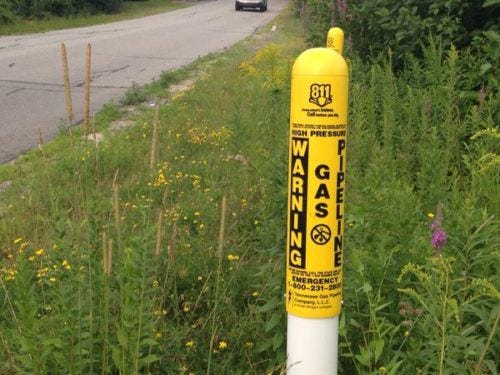Pipeline Decision Maintains Federal Supremacy; Goes to High Court
The first ruling is in on the Kinder Morgan pipeline/Article 97 of the Massachusetts Constitution case- and it’s in keeping with established law.
Judge John Agostino held that the Massachusetts Constitution could not supersede the authority of the Federal Energy Regulatory Commission (FERC) due to the power of the Supremacy Clause.
The decision’s implementation was delayed until July 29 to allow both parties to appeal.
When I wrote about the case last month, I said that there were three questions that needed to be answered in litigation. Agostino’s ruling has answered them- for now.
Is eminent domain as defined by FERC stronger than a state’s publicly protected land with no easements?
Yes, says Agostino.
The United States Supreme Court has consistently sustained the jurisdiction and preemption regarding pipelines and other endeavors of interstate commerce. Nothing in the [Natural Gas Act] suggest that the Commonwealth share power to regulate these practices.
In other words, Agostino says, the federal government’s pipeline-related legislation has more power than the Commonwealth’s Constitution or legislature to regulate the path of the CEP.
Does the federal government’s determination of the common good supersede state-defined Constitutional rights?
Yes, say Judge Agostino, absolutely.
It is self evident that the timely completion of the proposed pipeline furthers the public interest, because the Project will help meet the current and future demand for natural gas and will support the overall reliability of the energy infrastructure…. it is within FERC’s authority to determine whether a proposed Project advances the public interest.
This is a little shaky. Kinder Morgan already suspended their sister project, the Northeast Energy Direct pipeline, because of lower than expected demand. Thus, “current and future demand for natural gas” is hardly certain in the region.
However, Agostino’s point about FERC is in keeping with the rest of the opinion.
Can a state’s Constitution have more power than a federal regulatory agency?
This is the big one, and has the most consequences for the Supremacy Clause. Agostino argues that, no, a state’s Constitution cannot have more power than a federal regulatory agency. His reasoning is worth quoting in full:
The Supremacy Clause is about allocating power between the federal and state governments with preemption the glue that ties the sates together in a federation. What is particularly troubling about the Commonwealth’s argument is the ease at which a state has the ability to stop a federal interstate project, be it a pipeline, highway, telecom network or electrical transmission lines by simply invoking a state constitutional provision geared to protect the environment. If accepted by the app courts, other states would be well advised to adopt this road to confederation, particularly those states that have expressed a less than harmonious relationship with Washington.
So, that’s a lot. But it breaks down like this:
The Supremacy Clause is the glue that holds all 50 states together into one country. Recognition of the authority of the federal government makes us a country.
If Agostino accepts that the Massachusetts Constitutional right to a clean environment supersedes the federal regulation of the pipeline, he is opening up any challenge to any interstate project on environmental grounds.
And if those challenges are allowed through, it’s a slippery slope to another rift between the states.
[H]ow you feel about these arguments will likely depend on your point of view on the pipeline, environmental rights, and issues of state versus federal sovereignty. How the courts feel will rely on either manipulating prior and unrelated precedence to apply to the case or creating new case law in the absence of applicable precedent.
No matter what, the battle’s not over. As Chloe Gotsis, a spokeswoman for the Massachusetts Attorney General put it in a prepared statement:
We are disappointed in Judge Agostini’s decision to grant Kinder Morgan’s request for a preliminary injunction. We are pleased, however, that the judge stayed his order until July 29, recognizing the critical role of our state Legislature in determining the status of conservation land and allowing it the time to act. We are reviewing the decision and considering our options moving forward.
July 29.
Stay tuned.
[spacer height=”20px”]
My reporting on the Northeast Energy Direct Pipeline, a separate TGP project, can be found at The Berkshire Courier and The Berkshire View.
[spacer height=”20px”]






